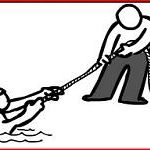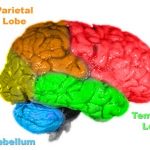Anorexia

The most obvious symptoms of anorexia revolve around weight loss or failure to gain weight when expected. However, if this is the only visible symptom, other explanations should be investigated – many medical conditions can lead to weight loss or loss of appetite. An anorexic doesn’t have to be extremely thin, although eventually, this is …
Read More

Your family and friends probably don’t know much about anorexia nervosa. Unless they’ve run into the disorder before, they probably think it’s “something models get” and believe the simple solution is to pressure you to eat. That’s not their fault, and if you respond to their good impulses with information, they may end up being …
Read More

Eating disorders like anorexia are complex illnesses that cannot be cured overnight. However, with a strong support system, anorexia can be easier to overcome. While having a conversation about anorexia with a friend or loved one can be difficult, here are a few ways to start. Understanding Your Motivation It is a commonly held belief …
Read More

Eating enough food to sustain and maintain proper nutrition is a strong biological drive. And although there are medical conditions that will interfere with eating (mostly physical damage or illness to the digestive system), this drive isn’t easy to overcome. Since, in anorexia nervosa, there is no underlying disease process which affects the ability to …
Read More

Approximately 24 million people suffer from an eating disorder such as anorexia, bulimia or binge eating disorder, according to the National Association of Anorexia and Nervosa and Associated Disorders (ANAD). In anorexia, people have a distorted perception of their overall body image: anorexics believe that they are extremely overweight when, in fact, they are severely …
Read More

The first task, before any help is offered, is to come to grips with the disorder. Read all you can about it and try to understand it isn’t a choice for anorexics. Anorexia nervosa really is a disease, and victims do not feel they are in control of their behavior. The more you learn, the …
Read More

Did you know that 95 percent of people with eating disorders are between 12 and 25 years old? Did you know that anorexia is the third-most common chronic illness among adolescents? Did you know that the mortality rate for teenage girls with anorexia is 12 times higher than those without anorexia? With numbers like these, …
Read More

According to the National Eating Disorder Association, there are currently 20 million women and 10 million men with eating disorders in the United States. It goes without saying, people suffering from anorexia need to seek professional help and the earlier treatment is received, the better the outcome will be. Anorexia: What is it? Anorexia nervosa …
Read More

From surgical robots to apps that monitor your heartbeat, technology continues to provide new and innovative ways to treat health conditions. But could it also work for anorexia? A new study suggests that simple imaging tricks could be helpful in treating the eating disorder, which was recently reported to be associated with the highest mortality …
Read More

Professional counselors use a process when confronting someone with anorexia or bulimia. The end goal is to get the patient to agree to, and participate in, treatment to get better. But it’s sometimes difficult to get an anorexic to see a medical professional in the first place. This means the goal of confronting someone is …
Read More
 Eating Disorder Self Test. Take the EAT-26 self test to see if you might have eating disorder symptoms that might require professional evaluation. All answers are confidential.
Eating Disorder Self Test. Take the EAT-26 self test to see if you might have eating disorder symptoms that might require professional evaluation. All answers are confidential.
Find a Treatment Facility Near You
Click on a state below to find eating disorder treatment options that could be right for you.









 Eating Disorder Self Test. Take the EAT-26 self test to see if you might have eating disorder symptoms that might require professional evaluation. All answers are confidential.
Eating Disorder Self Test. Take the EAT-26 self test to see if you might have eating disorder symptoms that might require professional evaluation. All answers are confidential.